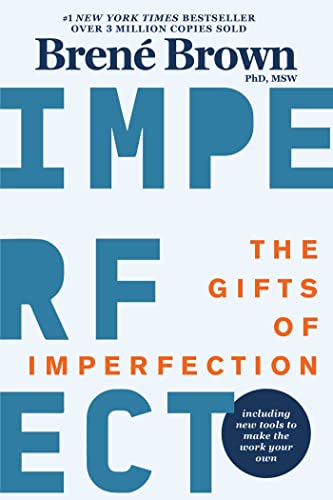The Gifts of Imperfection provides an introspective view of our fallibility and guides us to become more accepting of others and ourselves. This lack of acceptance breeds feeling of shame, where we believe our flaws make us unworthy of love, belonging, and connection. Brene explains that overcoming shame begins by disassociating an action (“I made a mistake”) from a perceived identity (“I am a bad person”). We also minimize this feeling by embracing vulnerability and empathizing with others’ faults. Finally, establishing a daily gratitude practice reminds us that collective strengths significantly outweigh our shortcomings. Gratitude is also an effective support mechanism when navigating inevitable hard times.
Throughout my career, I’ve learned that tight-knit relationships are the glue that holds teams together and the catalyst for exceptional performance and sustained competitive advantage. Advancing work relationships from cordial to deeply trusting requires being vulnerable and open. This book has helped me connect with coworkers by increasing self-awareness of my flaws and realizing that embodying a culture of inclusivity and acceptance fuels optimal collaboration.
You should read this book if you…
- want to understand where shame shows up in your life and how it impacts your relationships
- seek deeper connections with colleagues and friends
- want to improve your effectiveness as a leader
Additional Information
Year Published: 2010
Book Ranking (from 1-10): 8 – Very Good – In depth insights on a specific topic
Ease of Read (from 1-5): 3 – Average
Key Highlights
- Owning our story can be hard but not nearly as difficult as spending our lives running from it. Embracing our vulnerabilities is risky but not nearly as dangerous as giving up on love and belonging and joy—the experiences that make us the most vulnerable. Only when we are brave enough to explore the darkness will we discover the infinite power of our light
- When we’re looking for compassion, we need someone who is deeply rooted, able to bend, and, most of all, we need someone who embraces us for our strengths and struggles. We need to honor our struggle by sharing it with someone who has earned the right to hear it. When we’re looking for compassion, it’s about connecting with the right person at the right time about the right issue
- Heroics is often about putting our life on the line. Ordinary courage is about putting our vulnerability on the line
- Compassion is not a relationship between the healer and the wounded. It’s a relationship between equals. Only when we know our own darkness well can we be present with the darkness of others. Compassion becomes real when we recognize our shared humanity
- In our technology-crazed world, we’ve confused being communicative with feeling connected. Just because we’re plugged in doesn’t mean we feel seen and heard
- One of the biggest surprises in this research was learning that fitting in and belonging are not the same thing, and, in fact, fitting in gets in the way of belonging. Fitting in is about assessing a situation and becoming who you need to be to be accepted. Belonging, on the other hand, doesn’t require us to change who we are; it requires us to be who we are
- Guilt = I did something bad. Shame = I am bad
- Authenticity is the daily practice of letting go of who we think we’re supposed to be and embracing who we are. Choosing authenticity means cultivating the courage to be imperfect, to set boundaries, and to allow ourselves to be vulnerable; exercising the compassion that comes from knowing that we are all made of strength and struggle; and nurturing the connection and sense of belonging that can only happen when we believe that we are enough
- Perfectionism is a self-destructive and addictive belief system that fuels this primary thought: If I look perfect, live perfect, work perfect, and do everything perfectly, I can avoid or minimize the painful feelings of shame, judgment, and blame
- I was shocked to discover that hope is not an emotion; it’s a way of thinking or a cognitive process. Emotions play a supporting role, but hope is really a thought process made up of what Snyder calls a trilogy of goals, pathways, and agency. In very simple terms, hope happens when We have the ability to set realistic goals (I know where I want to go). We are able to figure out how to achieve those goals, including the ability to stay flexible and develop alternative routes (I know how to get there, I’m persistent, and I can tolerate disappointment and try again). We believe in ourselves (I can do this!)
- When we lose our tolerance for discomfort, we lose joy
- Without exception, every person I interviewed who described living a joyful life or who described themselves as joyful actively practiced gratitude and attributed their joyfulness to their gratitude practice
- If we’re not practicing gratitude and allowing ourselves to know joy, we are missing out on the two things that will actually sustain us during the inevitable hard times
- “My scientist friends have come up with things like ‘principles of uncertainty’ and dark holes. They’re willing to live inside imagined hypotheses and theories. But many religious folks insist on answers that are always true. We love closure, resolution and clarity, while thinking that we are people of ‘faith’! How strange that the very word ‘faith’ has come to mean its exact opposite”

Discover more from The Broader Application
Subscribe to get the latest posts sent to your email.
